|
June 17, 2017 - No. 22
In
Memoriam
Charles
Boylan
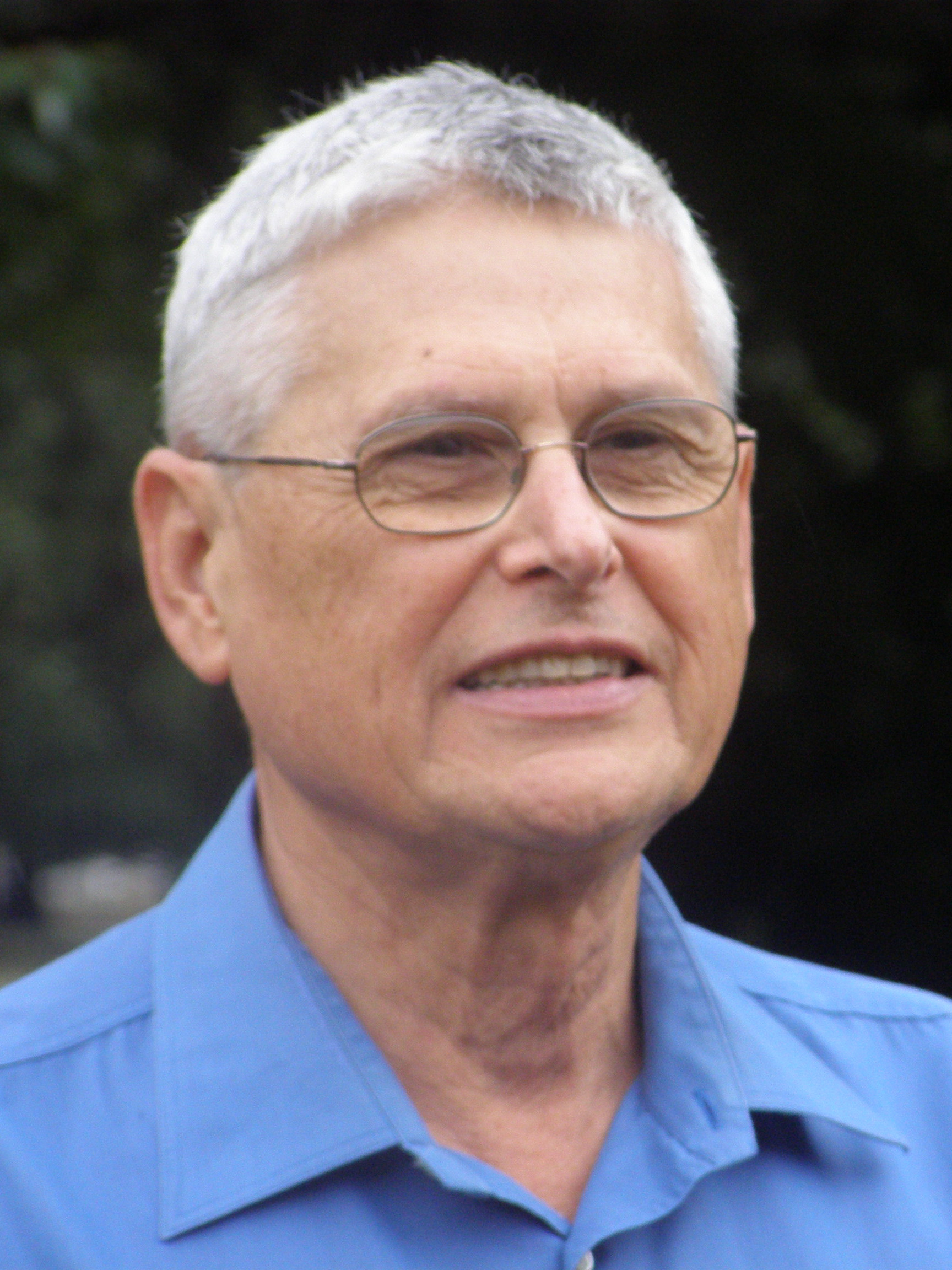
March 18, 1943 - June 17, 2017
With
deepest
sorrow
the Communist Party of Canada (Marxist-Leninist) informs
you that our Comrade Charles Boylan passed away peacefully on June 17
just before 11:00 pm. Charles died with his beloved partner Donna at
his
side. His children and close comrades and friends were with him
throughout the day.
Charles
spent
his
last days in the Cottage Hospice in East Vancouver close to
his childhood home. It is fitting that the hospice overlooks the
harbour where Charles carried out much of his lifelong work to humanize
the social and natural environment and make Canada a zone for peace.
With
our
deepest
social love and affection we send our condolences to Donna,
Brendan, Edana, Thomas, his brother John and the entire Boylan extended
family and to all the Comrades in BC and throughout the country and his
many, many colleagues and friends who will miss him dearly.
Our
Charles
lived
life to the fullest under all conditions and
circumstances. To the very end he continued communicating directly with
the literally hundreds of people with whom he lived, worked and shared
weal and woe, cementing the unity of the people around a modern
nation-building project. He dedicated his entire life to the
emancipation of the working class and to ending colonial injustice and
making Canada a zone for peace.
Charles
has
donated
his body to the University of British Columbia for teaching
purposes; a private cremation will follow in due course. The Party will
organize a Celebration of Life in Vancouver in September. We will post
an on-line book of condolence at www.cpcml.ca/charles
for all those who wish to share their grief and experiences with
Charles.
Charles
made
the
Party proud. Our loss is great. He will be truly missed.
Central Committee
Communist Party of Canada (Marxist-Leninist)
|
|
In
the
Parliament
• Trudeau Government's
Anti-Social, Anti-National Agenda
• Bill C-44,
Budget Implementation Act, 2017, No. 1
• Bill C-22, An Act to Establish the
National Security and
Intelligence Committee of Parliamentarians
• Bill C-23, Preclearance Act, 2016
Government Provides Hundreds of Millions to
Softwood Lumber Barons
• Oppose State Subsidies to Pay the Rich!
- K.C. Adams -
• Subsidies for Forestry Companies
• Trade Dispute with
Lumber Barons in the U.S.
Results of British
General Election
• The Election and Its Aftermath
• Crisis of Political System Deepens
as People Say No! to May
- Workers' Weekly -
• Negotiating with the DUP -- The
Conservatives' Second Bad Move
• Wishful Thinking About the Return
of the Two-Party System
and the Stability It Allegedly Provides
• Who Rules?
• The Irish Question
47th General Assembly
of Organization of American States
• Latin American and Caribbean
Countries Prepare to
Counter Interventionist Manoeuvres
In the Parliament
Trudeau Government's
Anti-Social,
Anti-National Agenda
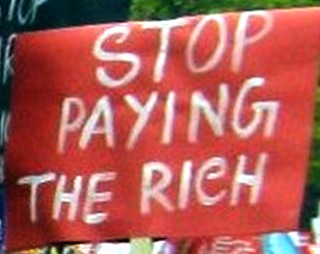 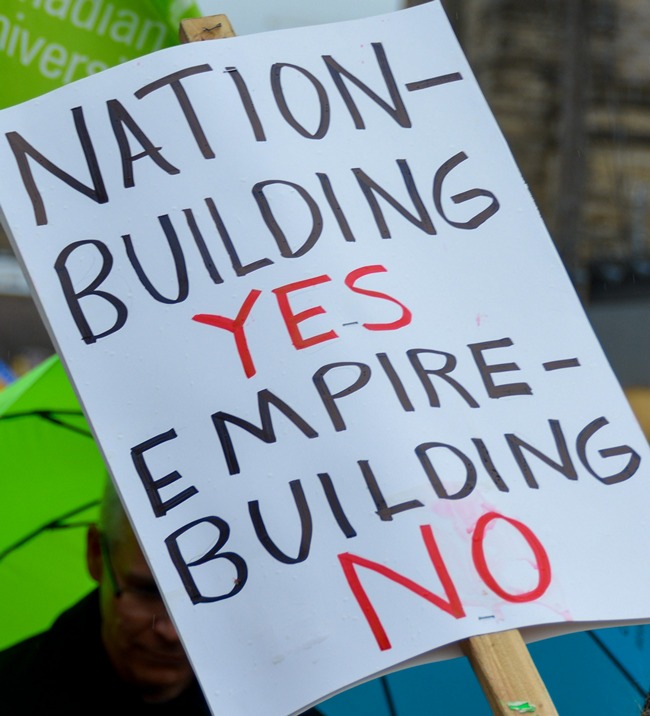 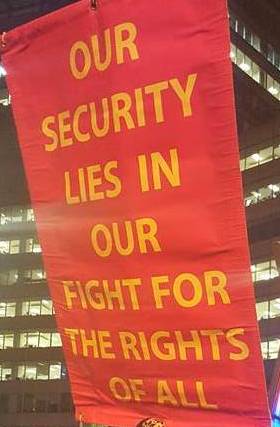
The Trudeau government has passed 30 pieces of
legislation
since it took over in November 2015. The direction it has set is
anti-social and anti-national, with added emphasis on covering up
this fact, along with efforts to deprive the people of any ability to
hold the government to account.

Besides the warmongering direction of the government's
military and foreign policy, which it decrees as a prerogative
power, the most prominent laws it has passed include changes to
the Canada Pension Plan which do not address Canadians' concern
with providing security in retirement; a pay-the-rich 2016 budget
implementation bill; legislation implementing the nation-wrecking
Comprehensive Economic and Trade Agreement (CETA) between Canada
and the European Union and a free trade agreement with Ukraine;
amendments to the Citizenship Act that do nothing to
uphold citizenship rights on a modern basis; amendments to the Canada
Labour
Code that do not protect workers
under
attack at this time or empower the unions to defend workers'
rights, but reverse likely-unconstitutional Harper-era
restrictions on workers' ability to form unions; and a bill
removing requirements for Air Canada to conduct maintenance work
in Canada as opposed to abroad.
Now the government is intent on railroading certain
pieces of
legislation through Parliament before it adjourns for the summer.
It has extended "sitting hours" in the Parliament until midnight
for the remaining days of this session of the House of Commons
which ends on Friday, June 23. Following adjournment, the House
of Commons does not reconvene until mid-September. However, media are
quoting a litany of gossip from alleged "Liberal insiders" that Trudeau
will change his Cabinet and prorogue (suspend) Parliament after the
summer in order to "reset" and "unveil a new agenda and inject a sense
of purpose in the run-up to the [October 2019 federal] election."
Talk about the need for a "reset" reveals the contempt
of the
Trudeau cabal and the entire ruling elite, including the media, for
accepted standards of honesty or morality as well as their
contempt for the concerns of Canadians and the peoples of the
world.
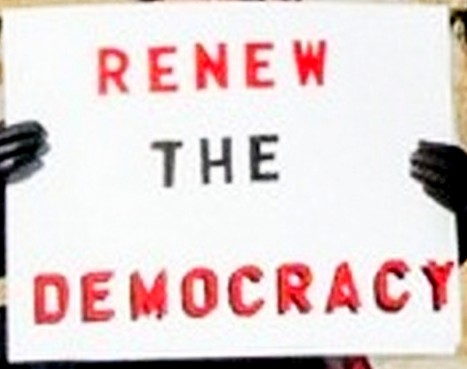
The neo-liberal Real Change program the Liberals
presented in the 2015 federal election made promises that were
presented as progressive and favouring Canadians but the
anti-social and anti-national reality is such that the biggest
problem for the government is getting Canadians to swallow the
narcissistic image it has of itself. All of it is done to distract
attention from the dangerous direction the Trudeau Liberals are taking
Canada. The other parties in Canada's cartel party system are
participating in this by promoting their own self-serving positions.
This clearly leaves the working class and people as the ones who must
provide the society with a nation-building aim.
The Liberals' so-called electoral program said they
would
implement reforms to change the first-past-the-post electoral
system to "make every vote count." Their failure to sell
Canadians on their self-serving brand of reform has now been
converted into inducing political parties to cooperate with
"intelligence agencies" to combat "foreign interference" and
"cyber threats to Canada's democratic process." The extent of the
Liberals' electoral reform farce can be seen in the increasing
involvement in the electoral process of both the intelligence
agencies and foreign consultants who run campaigns for hire --
all in the name of "defending democracy."
Another Justin Trudeau "election promise" was that his
government would end Canada's combat mission in Iraq and Syria. This
has turned into an expanded mission in the Middle East and in Ukraine,
a new permanent military deployment in Latvia, and the stepped-up
expansion of NATO, war preparations and military spending.
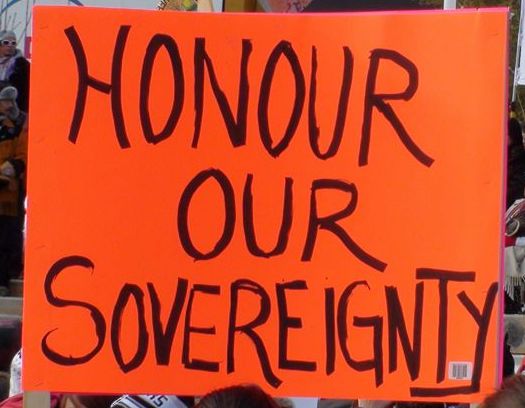
Promises to restore nation-to-nation relations with
Indigenous peoples have given way to the federal Cabinet
proclaiming that it will "decolonize" the Indian Act and
other laws while no substantive redress has taken place for the
crimes against the Indigenous peoples in the past or today.
Promises to make needed investments in infrastructure
have
turned into the establishment of an "Infrastructure Bank" whose
main mission is to privatize infrastructure and secure private
returns for big projects.
On these matters, as well as the approach taken to
disarticulate Canadians' opposition to Bill C-51, secret police powers
and stepped up militarism through "consultations" run by U.S.
consulting firms for hire, everything is done to deprive Canadians of
an outlook that permits them to build the movements that can hold
governments to account. Talk of a "reset" and the Liberals' need to
come to terms with their image problems contributes to the same. All
the while, the Liberals continue to implement their anti-social,
anti-national agenda through the Parliament as well as the executive
power.
TML Weekly is providing information below about
priority bills the government is pushing to pass before
Parliament adjourns.

Bill C-44, Budget Implementation Act, 2017, No. 1
Bill C-44 is a 300-page omnibus budget implementation
bill amending dozens of Acts and enacting others, all ostensibly to
implement the 2017-2018 federal budget. It amends more than 30 pieces
of legislation and enacts at least four new laws. Because all the
measures in the bill allegedly relate to the
implementation of the budget, it was only studied by
the House of Commons through its Standing Committee on
Finance. The bill is currently before the Senate Standing Committee on
National Finance. A main aspect of the bill is to establish an
"Infrastructure Bank" whose mission is to promote public-private
partnerships in infrastructure and secure big payouts for
investors.

Among other things, Bill C-44 implements various changes
to
tax credits (including abolishing the public transit tax credit)
and to tax rates on alcohol and tobacco products; various other
changes are made to the Special Import Measures Act, the Financial
Administration
Act, the Canada Deposit
Insurance Corporation Act, the Bank Act, the Shared
Services Canada Act and the Canada Student
Financial
Assistance Act under the auspices of implementing measures
in the 2017-2018 federal budget.
The nation-wrecking measures contained in the omnibus
budget bill can be seen in such amendments as the one proposed to the Investment Canada Act to increase
to $1 billion the minimum threshold for a foreign investment that
requires a government review.
Because of the bill's sheer volume, many measures have
gone unexplained to either the public or Parliamentarians. For
instance, Bill C-44 amends the Canada Labour Code to
"transfer to the Canada Industrial Relations Board the powers,
duties and functions of appeals officers" in matters related to
health and safety and of referees and adjudicators in matters
related to standard hours, wages, vacations and holidays. The Wage
Earner Protection Program Act is likewise amended to
"transfer to the Canada Industrial Relations Board the powers,
duties and functions of adjudicators under that Act."
The Canada Industrial Relations Board has jurisdiction
over
roughly one million workers in federally-regulated sectors. This
aspect of Bill C-44, portrayed as favouring workers, ostensibly
relates to a budget promise to "modernize the Canada Labour Code"
to "Strengthen and modernize compliance and enforcement
provisions"; "Give federally regulated employees the right to
request more flexible work arrangements"; and "Limit unpaid
internships in federally regulated sectors." However, Bill C-44
makes no specific mention of any of these things. It simply
transfers authorities and gives certain ministerial powers,
calling into question what the government is really up to with
these changes.
Other measures that seem to be related to announcements
in the
federal budget include increasing the maximum length of parental
leave in the Canada Labour Code and making various changes
to the Canadian Forces Members and Veterans Re-establishment
and Compensation Act concerning veterans' benefits. Various
amendments are also made to the Immigration and Refugee
Protection Act related to Ministerial powers; to the Food
and Drugs Act to "give the Minister of Health the authority
to fix user fees for services, use of facilities, regulatory
processes and approvals, products, rights and privileges that are
related to drugs, medical devices, food and cosmetics."
Bill C-44 also enacts the Canada Infrastructure
Bank
Act, which establishes a Crown corporation by that name for
purposes of investing and securing private investment in private
"revenue-generating infrastructure projects," including wastewater
systems, public transit, roads and electrical utilities. The
Infrastructure Bank is based on a proposal from Minister of Finance
Bill Morneau's Advisory Council on Economic Growth, which empowered
executives of the big investment and consulting firms to decide the
direction of Canada's economic policy in their own interests. Their
recommendations were enacted by Minister Morneau, himself the founder
of Morneau Shepell, one of the largest firms in Canada for
private management of employee benefits such as health care and
pensions, which also promotes investment in privatized infrastructure.
According to Michael Sabia, President and CEO of the Caisse de
dépôt et placement du Québec, investors will expect
a rate of profit of seven to nine per cent from the Canada
Infrastructure Bank, which will greatly increase public costs compared
to those that would result from public borrowing and financing rates of
interest.

The main focus of the Infrastructure Bank will be to
push "public-private partnerships" (P3s), making these pay-the-rich
schemes widespread in Canada's major cities. According to the Liberals,
two-thirds of the "investment" in new P3s or existing infrastructure
that has been privatized is to come from private firms or pools of
pension and insurance money. Private investors will be given a
guaranteed rate of return and the long-term costs will be borne by the
state treasury and Canadians via the user fees for private
infrastructure such as roads and bridges. Information about investors
and those pushing for specific projects are to be kept secret under the
Act, and exempt from access to information requests on the basis of
"commercial confidentiality" along with other specific exemptions that
have been made for the bank.
Finally, Bill C-44 also amends the Parliament of
Canada
Act to change the terms of the Parliamentary Budget Officer
"to report directly to Parliament and to be supported by an
office that is separate from the Library of Parliament and to
provide for the appointment and tenure of the Parliamentary
Budget Officer to be that of an officer of Parliament." Current
Parliamentary Budget Officer Jean-Denis Frechette reports that
the changes in the bill would in fact limit the Budget Officer's
ability
to initiate reports, restrict the ability of individual
parliamentarians to seek cost estimates on government projects and
require the Budget Officer to submit annual work plans for
approval by the Speakers of the House of Commons and Senate.

Bill C-22, An Act to Establish the National Security
and
Intelligence Committee of Parliamentarians
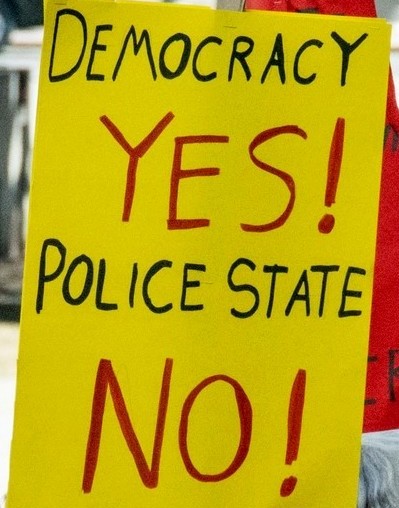
Bill
C-22,
which
is
currently
before
the
Senate,
would
establish
a
"National
Security
and
Intelligence
Committee
of
Parliamentarians,"
made
up
of
nine
Members
of
Parliament
and
Senators,
with
four
members
of
the
committee
being
Liberal
MPs,
two
Senators
and
the
rest
MPs
from
other
parties.
Ottawa
South Liberal MP David McGuinty, (brother of former
Ontario Premier Dalton McGuinty) was appointed Chair of the Committee
in January 2016 despite the Committee not yet having been approved.
The
creation
of
the
Committee
is
presented
as
a
measure
to
improve
the
accountability
of
Canada's
police
and
spy
agencies
whose
powers
have
been
greatly
expanded,
but
in
fact
it
will
enshrine
arbitrariness
and
secrecy
in
governance
and
make
"legal"
the
operations
that
currently
take
place
outside the rule of law. Before assuming their positions,
Committee members must be vetted by the Canadian Security Intelligence
Service (CSIS) and other police and spy agencies, the very agencies
whose conduct they are supposed to be reviewing.
The mandate of the Committee is not to oversee the
activities
of the agencies but to review:
- "the legislative, regulatory, policy, administrative
and
financial framework for national security and intelligence;"
-
"any activity carried out by a department that relates to
national security or intelligence, unless the activity is an
ongoing operation and the appropriate Minister determines that
the review would be injurious to national security; and"
- "any
matter relating to national security or intelligence that a
minister of the Crown refers to the Committee."
Members must also swear an oath of secrecy to be
"faithful
and bear true loyalty to Canada and to its people, whose
democratic beliefs I share, whose rights and freedoms I respect"
and "not communicate or use without due authority any information
obtained in confidence by me in [this] capacity." The
contradiction for Parliamentarians to vow to be loyal to Canada
and its people and "democratic beliefs" and at the same time
subordinate themselves to the powers of Canada's secret police
and promise to not reveal their nefarious actions is
self-evident.
Far from providing accountability, the Minister of
Public Safety can declare anything harmful to national security and
make it a crime for a Member of Parliament to disclose such
information. According to Bill C-22, the Minister of Public Safety may
declare anything off-limits and confidential, and "Members would not be
able to claim parliamentary immunity if they disclosed what is deemed
classified information" and may be prosecuted should they do so. The
Minister of Public Safety will have the authority to stop a review of
the Committee if he declares it "injurious" to national security, as
well as to withhold "special operational information."
The reason for classifying the information as secret can also be
classified as secret.
On June 5, speaking to the Senate National Security
Committee
that is studying the bill, Minister of Public Safety Ralph
Goodale said the creation of the Committee is "a major piece of
the government approach to national security, but it is by no
means the only piece." Goodale stated that the government is
"currently preparing additional proposals" following the release
of a report on its consultations on "Canada's national security
framework" which are part of the government's plans to
"constitutionalize" the secret police powers contained in the
Harper government's Bill C-51, Anti-Terrorism Act, 2015. In
that vein, the House of
Commons Order Paper for Monday, June 19 indicates that Goodale will
introduce a new bill entitled An Act
respecting national security matters.

Bill C-23, Preclearance Act, 2016
Bill C-23, An Act respecting the preclearance of
persons and goods in Canada and the United States would
greatly expand the powers and presence of U.S. border agents in
Canada, from select airports in Canada to land and water crossings. As
well, it would permit preclearance of cargo by U.S. agents in
Canadian facilities, permit U.S. agents to carry weapons and detain,
search and use force against Canadians within preclearance facilities
in Canada.
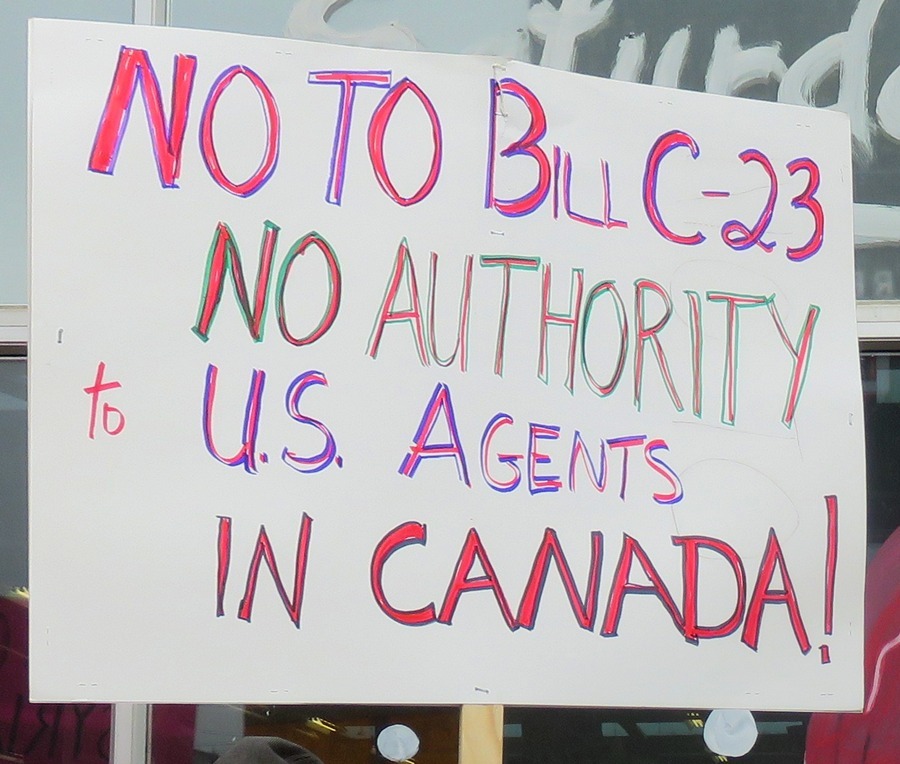
While the bill was introduced in June 2016, the House of
Commons Standing Committee on Public Safety and National Security's
review of the bill was only completed on June 14, 2017. The bill
implements measures agreed to and announced by the Harper and Obama
administrations in 2015 and reiterated by Trudeau and Trump.
The bill has yet to be passed by either the House of
Commons or Senate, and Parliament adjourns June 23 for the summer.
According to media reports, Canada's ambassador to the
United States David MacNaughton told the Senate Committee on National
Security and Defence on June 14 that he is "embarrassed" that Canada
has not yet implemented the law. MacNaughton added that he is under
constant pressure from U.S. officials about when the law will be passed.
Canada's Privacy Commissioner Daniel Therrien, in a May
24 letter to the House of Commons Committee that studied the bill,
noted that the U.S. administration has announced its intention to
introduce "extreme vetting" of "any and all aliens who seek to enter
the United States." Therrien said, "It would appear that this policy
would equally apply at preclearance locations in Canada."
Therrien concluded, "In many situations, however, it
would appear that
Canadians who wish to enter the U.S. will, at preclearance locations in
Canada as well as at border points in the U.S., have to face the
difficult choice of either accepting a search without grounds or
foregoing their wish to travel to the U.S."
According to a June 15 report from the International
Civil
Liberties Monitoring Group (ICLMG), one Liberal MP on the House
of Commons Committee said concerns about violations of the rights
of Canadians at the border cannot be addressed because the
agreements have already been signed between Canada and the U.S. The MP
claimed that "Our hands are tied," ICLMG said. Proposed amendments to
Bill C-23 were also rejected on the grounds that the bill must adhere
to the provisions of the 2015 U.S.-Canada Agreement On Land, Rail, Marine, And Air
Transport Preclearance.
For more information about Bill C-23, see "Oppose All
Pretexts for Expanding U.S. Authority Over Canada and Canadians!" TML
Weekly, April 15, 2017.

Government Provides Hundreds of Millions
to Softwood Lumber Barons
Oppose State Subsidies to Pay the Rich!
- K.C. Adams -

Not a month goes by without a major announcement of
state
funding to pay the rich. Last month it was the inauguration of an
infrastructure bank; the month before, millions were given to
Bombardier, and now, companies in the softwood lumber sector are
to receive $867 million of federal funding.
These schemes to pay the rich are camouflaged in
rhetoric
about protecting and creating jobs. They solve no basic problem
in the economy; rather, they perpetuate all the objective and
subjective factors that cause recurring economic crises and
hardship for the working class and others in its communities.
Forestry workers produce $22 billion in value annually
of
which the lion's share is under the ownership and control of the
financial oligarchy. Except for the new value workers produce
as their wages and benefits, most of the rest is taken out of the
local economies where it is produced. In the softwood lumber
sector during the last decade, the same giant forestry companies
the federal government is lavishing with almost a billion dollars,
have ripped out over $5 billion from value produced in the
Canadian forestry communities and used it to buy existing mills
in the United States.
In the cynical words of CBC News, "Companies like
Canfor and
West Fraser are now somewhat insulated from [U.S] softwood lumber
duties, since they now own more sawmills and plants in the U.S.
than they do in Canada." They are poised to profit from the
U.S.-imposed duties and tariffs on Canadian softwood lumber because of
higher market prices for lumber they sell both in the U.S. and
Canada. Their mills in the U.S. will even receive a pro-rated
share of the annual estimated $1.7 billion in lumber duties and
tariffs collected at the border once the U.S. government
distributes them.
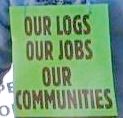
The state provides funds
collected collectively from
the
entire economy to specific private companies that are incapable
of solving their problems. Such a situation is corrupt and a
failed system sustaining a privileged class of owners of social
wealth in contradiction with the rest of the people and needs of
the economy and society.
The pay-the-rich system propping up the private
ownership and
control of the financial oligarchy is in contradiction with the
socialized and interrelated character of modern industrial mass
production and the human factor central to the economy, the
working class. State intervention on the side of the very rich
exposes the necessity for a new direction for the economy. The
value workers produce must come under the control of the actual
producers to strengthen in a planned and stepwise scientific
manner their sectors, the local economies, and the broad
interrelated Canadian economy on which everything and everyone
depends, and to provide value for the general interests of their
communities and society.
Why are Canadian state funds being used in this
outrageous
way to pay the rich? What problem does it solve? What path does
it open for Canada's forestry workers and their communities? The
government is stuck and has no solutions other than to pay the
rich and attack the working people. The situation is biased
towards the rich. The financial oligarchy refuses to step down
from its perch of absurd wealth, power, privilege, control and
empire-building. The working people have to seize the initiative
and assume control over their work and lives and move the economy
in a new direction of nation-building that solves the problems
emerging from industrial mass production. The economy needs a
modern aim to serve the people through cooperation and their
empowerment and control over those economic, political and social
affairs that affect their lives.
The financial oligarchy knows only how to serve its
private
interests in competition with other owners of social wealth and
by exploiting the actual producers, the working class. The
financial oligarchy cannot solve the problems of industrial mass
production because it divides up the modern economy into warring
groups that fight amongst themselves in empire-building and
exploits those who do the work, the working class.
Broad cooperation is necessary to solve the modern
economy's
problems. The social wealth the working class produces should not
be taken out of the economy and channeled towards a privileged
elite. The value workers produce is necessary for reinvestment
back into the economy and society. To have private accumulation
of social wealth as the aim of an economy that is completely
socialized must cease if any problems are to be solved. A new aim
to serve the actual producers, their economy, and the well-being
of the people and society must come into being in harmony with
the socialized conditions of industrial mass production and
distribution.
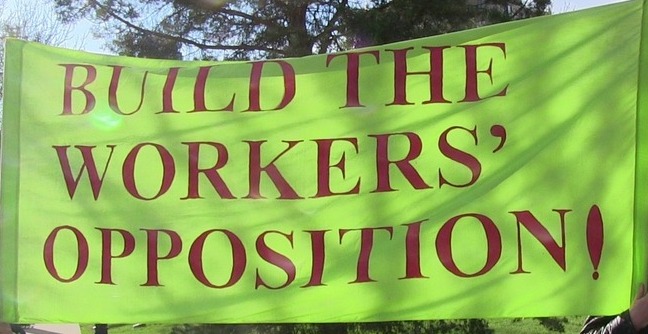
To use the social wealth
workers produce within a
socialized
economy to pay a privileged class of rich is corrupt and an
abomination. Those who own and control the basic productive
forces and the state are not interested in change. They use their
social wealth, class privilege and the state to block change and
deprive the working class of its right to build the new. To
change the situation, the working class must organize its own
political headquarters and independent institutions to become
powerful enough to deprive the financial oligarchy and its state
of the power to perpetuate these pay-the-rich scandals and to
deprive the working people of their right to solve the economic,
political and social problems of the modern economy.
Unite to Build the New!

Subsidies for Forestry Companies
The U.S. lumber barons have unleashed a trade
dispute covering about $7 billion in annual softwood lumber
exports from Canada. Their goal is higher lumber prices, greater
control of the lumber market and to consolidate production in
fewer hands. The U.S. government agreed to accommodate them and
has imposed a range of duties on particular Canadian companies,
averaging 20 per cent for exported lumber with an additional 10
per cent tariff coming on June 23. In response, the Trudeau
government is making available $867 million in state funds to
support forestry companies operating in Canada.

The financial oligarchy of
Fortress North America
directly
and through the major stock exchanges owns and controls the large
Canadian forestry companies. With few exceptions, the large
companies with operations in Canada also own mills in the U.S.
and will benefit from the higher prices and weakening of their
smaller competitors arising from the U.S. tariffs. The giants in
BC -- Canfor Corporation and West Fraser Timber Co. Ltd. -- now own
more sawmills and plants in the U.S. than they do in Canada.
Weyerhaeuser, the largest forestry consortium in the U.S. by far,
directly owns and controls a Canadian subsidiary.
The bulk of the promised federal money is for loan
guarantees
and direct assistance for forestry industry firms for innovation
and to market their products beyond the U.S. "Innovation" is
mostly used as a buzzword for the introduction of machinery in
production and distribution to displace active workers. About $90
million of the promised state money will go towards work sharing
and job training of forestry workers under the Employment
Insurance program. Several thousand forestry workers are
projected to lose their jobs in the coming two years through the
closure of smaller mills and increased use of machinery and
advanced technique at the larger mills.
Ministry of Natural Resources Press Release
Minister of Natural Resources Jim Carr, Minister of
Foreign Affairs Chrystia Freeland and Minister of International Trade
François-Philippe Champagne jointly announced the subsidies at a
press conference on June 1. The federal money is in addition to
subsidies from various provincial governments, including $7.7 million
from BC.
A press release from the federal Ministry of Natural
Resources says, "Export Development Canada (EDC) will make
commercial financing and risk management solutions -- including
loans and loan guarantees -- valued at up to $500 million
available to assist viable forestry companies. The Business
Development Bank of Canada (BDC) will make $105 million in
commercial financing available to help eligible forestry
companies in the short and medium term."
[Note the terms "viable" and "eligible," which may
eliminate loans for many smaller mills in BC that have already been
greatly weakened by the Mountain Pine Beetle infestation. -- TML Note]
"Funding for further loan guarantees may be considered
by the
Government in the future to address changing market
conditions.... Additional measures announced today include more
than $260 million in new funding to: support efforts to expand
overseas markets and promote the diversification of Canadian wood
products beyond those targeted by U.S. duties on softwood lumber;
help Indigenous communities and organizations improve the
performance of their forest sector initiatives; provide a
temporary extension of the maximum period for Work-Sharing
agreements from 38 to 76 weeks in order to reduce layoffs; and
expand supports to help affected workers upgrade their skills and
transition to new opportunities.... These actions defend the
interests of Canadians against the U.S. Department of Commerce's
imposition of countervailing duties on Canadian softwood lumber
and build upon recent efforts made to ensure the continued growth
and vibrancy of this sector. The Government of Canada continues
to forcefully press our American counterparts to rescind this
unfair and unwarranted trade action."
"Quick Facts
" In 2016, the forest industry accounted for
$22
billion of Canada's GDP. In 2015, Canada's forest industry
directly employed more than 200,000 Canadians, including 9,500
jobs in Indigenous communities. More than 170 rural
municipalities have a significant portion of their income
generated by the forest sector, and there are over 600 mills
producing softwood lumber in Canada.
"Canadian softwood trade
"Canada exports softwood lumber to more than 140
countries.
Since 2002, Canadian exports to China have increased by more than
25 times to $1.6 billion and exports to South Korea, Southeast
Asia and the U.K. have increased more that 200 per cent to over
$700 million.
"Canadian softwood trade with the U.S.
"90 per cent of U.S. homes are built with softwood. The
U.S.,
however, met only 70 per cent of its softwood lumber needs -- Canada
supplied virtually all of the rest. U.S. is the number 1
destination for Canadian forest products exports (USD $18B in
2016). The U.S. National Association of Home Builders calculates
that every additional $1,000 (USD) in home-costs puts home
ownership out of the reach of more than 150,000 American
families. Since 2005, Canadian companies have invested over USD
$5 billion in the U.S. forestry sector."
[The big forestry companies did not invest this $5
billion of
value in the Canadian forestry communities where it was produced
to strengthen and diversify the local economies beyond forestry
social product. This problem of control over produced value and
where it is invested must be addressed in a Canadian
nation-building project that takes the economy in a new
pro-social direction. -- TML Note]
"U.S. residential construction employs 3.8 million
Americans,
and duties could result in the loss of as many as 8,000 American
jobs and millions in lost wages. Canada is the number 1 customer
for forest products exports from 27 U.S. States (USD $7.2B in
2016)."

Trade Dispute with Lumber Barons in the
U.S.
Former Canadian lumber council executive and trade
diplomat Carl Grenier told CBC News, "A long dispute means the
U.S. collects more duties on Canadian products." Referring to the
fourth time the U.S. Commerce imposed such duties, Grenier said,
"In 2006, $500 million of the final settlement ended up in the
pockets of U.S. lumber producers. The appetite for this ransom
money is still there with the [U.S. lumber] coalition. Basically
the U.S. has learned to game the system. U.S. authorities don't
care a whit about the way the forests are managed. They only care
about the possibility of kicking Canadian exporters of softwood
lumber out of the market when prices are low.'"
The announcement of the threat of softwood lumber
duties last December and the actual imposition in May coupled with
strong demand has had a dramatic effect raising lumber market prices.
Many say the reason for the trade dispute, aside from eliminating
competitors and making a fast buck from the duties, is to raise lumber
prices and making a quick score. The U.S. softwood lumber producing
sector, which now includes many Canadian-based companies, can only
supply about 70 per cent of the lumber market when the market is
strong. The imports from Canada keep the market prices from
skyrocketing when demand is high. The duties and tariffs act to counter
the downward pressure on prices coming from Canadian supply.
Business in Vancouver reports this has
precisely been
the case, "Currently, lumber prices in the U.S. are so
high that many Canadian lumber producers are expected to be able
to pay the duties without having to curtail production. But some
smaller sawmills, especially in the Interior of BC, may
eventually be forced to shut down, or at least curtail production
periodically. At the beginning of the year, Canadian lumber
producers were selling at just a little more than U.S.$300 per
thousand board feet. With the duties their prices are around
U.S.$370 (per thousand board feet)."
The Globe and Mail quotes Susan Yurkovich,
president
of the BC Lumber Trade Council, "Right now, markets
continue to be pretty strong and lumber prices are mitigating the
impact [of the duties] -- it's largely being passed through to
U.S. consumers."
However, Yurkovich estimates with the impact of the
duties
and additional tariff of 10 per cent coming on June 23, "Canada's
wood products manufacturers will see pre-tax profits shrink from
$1.8-billion in 2016 to $1.4-billion this year and $1.1-billion
in 2018, as the United States issues duties averaging 30 per cent
on Canada's softwood lumber. Duties could reach $1.7-billion a
year."
Those duties, unless a settlement is reached to repay
Canadian exporters, are distributed amongst U.S. softwood lumber
producers, including the large Canadian-based companies that now
own mills in the United States.
CBC News writes, "Companies like Canfor and West Fraser
are
now somewhat insulated from softwood lumber duties, since they
now own more sawmills and plants in the U.S. than they do in
Canada, although their Canadian mills could be forced to curtail
production at some point."

Results of British General Election
The Election and Its Aftermath
In this issue, TML Weekly is providing articles
on
the results of the June 8 British General Election from the June
14 issue of Workers' Weekly, a publication of the
Revolutionary Communist Party of Britain (Marxist-Leninist).
Since the articles were published, it has been
confirmed that the British Throne Speech, known as the Queen's Speech,
which was scheduled for June 19 has been postponed to June 21. As well,
despite rumours that the speech would be postponed so that a
"confidence and supply" arrangement could be worked out with the
Democratic Unionist Party (DUP), who elected 10 MPs from constituencies
in the north of Ireland, no agreement has yet been reached.
What is certain is that the whole "Irish question" is
once more centre-stage. Indeed, Conservative Prime Minister Theresa May
met with five parties from the north of Ireland on this question in the
week following the June 8 election, as an agreement must be reached
between the northern Irish parties by June 29 or direct rule from
Westminster will once again be imposed. The northern Ireland Assembly
has been suspended since the power-sharing agreement between
Republicans and Unionists broke down in March.
During these meetings, Gerry Adams, President of Sinn
Féin,
notified Theresa May that the negotiations with the DUP to have
them prop up the Conservative government violate the Good Friday
Agreement. Following his meeting with May on June 15 Adams said,
"We told Prime Minister May she and her government are in default
of the Good Friday Agreement and that they have turned a blind
eye to the disruptive actions of the DUP over a long time." Adams
concluded, "We told the British Prime Minister that in our view
she is playing fast and loose with the Good Friday Agreement in a
desperate attempt to cling to power. We challenged the British
Government to fully implement the outstanding aspects of the Good
Friday and subsequent agreements. The Good Friday and subsequent
agreements changed the relationship between our two islands. It
is a beacon of success for conflict resolution throughout the
globe." For her part, Theresa May said that "if no resolution is
reached then we will need to consider what steps we need to take,
to ensure Northern Ireland has the political stability it
needs."
TML Weekly also expresses its heartfelt
condolences
to the victims of the Grenfell Tower tragedy and condemns the
social irresponsibility of the ruling elite that led to this
crime. In the early hours of June 14, a 24-storey tower block
went up in a horrific inferno killing an unknown number of
residents, likely more than one hundred, with the official death toll
at 79 and rising. Many are saying the tragedy
can be attributed to criminal negligence by the Westminster
government and the local Kensington and Chelsea Borough Council
and in the aftermath there have been mass protests by local
residents and even more demands from all quarters for Theresa May
to go. Her lack of humanity and the government's pursuit of an
aggressive austerity agenda have fuelled these demands. Even the
Queen of England herself put Theresa May in the shade by visiting
survivors of the tragedy, which May refused to do.
A further complicating factor and indication of the
deep
political crisis of the system of representative democracy is the
fact that negotiations on Brexit are due to start Monday, June 19,
with the negotiators from the EU showing little patience with the
situation Britain finds itself in.

Crisis of Political System Deepens
as People Say No! to
May
- Workers' Weekly -

The result of the June 8 General Election has been a
catastrophe for Theresa May and the Conservative Party as well as
the ruling circles which are now left to pick the chestnuts out
of the fire during the Brexit negotiations.
The Conservatives won 318 seats, down from 331
(including the
Speaker), and eight short of an overall majority, while the
Labour Party won 262, up from 232. The desperation of the ruling
class is such that they have counselled Theresa May to stay on as
Prime Minister even though the strategy she campaigned on to get
a mandate for "strong and stable government" lies in tatters.
With difficulty May is attempting to come to an arrangement with
the Democratic Unionist Party (DUP) from the north of Ireland in
order to form a government. This has in turn given rise to fears
that the "Irish question" will once again cause havoc with the
plans of the ruling class to pursue its anti-social,
anti-national agenda in peace.
Some of the observations which have emerged from the
results
include that:
- The vote against the Conservatives was a vote against
the
neo-liberal austerity agenda.
- The youth participated in the election and they voted
against the Conservatives because of the austerity agenda.
- The metropolitan areas, particularly London, chose
Labour.
- The Liberal Democrats made no headway on the promise
to hold a
second referendum on Brexit. They were rejected because of their
sell-out when they formed a coalition with the Conservatives.
- Both the Scottish Labour Party and Scottish
Conservatives
made headway in Scotland at the expense of the Scottish National
Party (SNP) which wanted to reverse the Brexit decision from the
Referendum. Labour succeeded in making the issue one of the SNP
not combating austerity, while the Conservatives succeeded in
making the issue that a second independence referendum would be a
diversion. The advance that the Scottish Conservatives made there
contributed to buoying the Tory vote but was not enough to win
seats lost elsewhere.
- In the north of Ireland, Sinn Féin and the DUP
made
headway at the expense of the Social Democratic and Labour Party and
the Ulster Unionists
respectively. This is also seen to represent support for an
anti-austerity agenda.
- The referendum vote in favour of Brexit did not
translate
into support for May or take it away from Corbyn.
- Attempts to destroy the Labour Party on the eve of
the
election utterly failed. The gamble of those who organised the
revolt of Labour MPs against Corbyn was as ill-advised as the
gamble of those who advised May to call an early election.
- The consequences of the disastrous "gamble" that the
Conservatives' weak majority in the Parliament could be turned
into a strong majority by calling an early election have yet to
fully reveal what they have in store for May's leadership and for
the Conservative Party itself. What else lies in store for the
ruling class, besides the utter mockery and derision expressed
for May from all quarters, is yet to be seen.
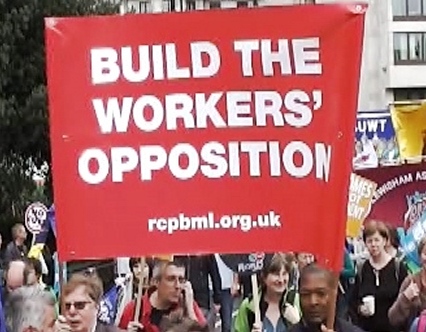 - The Conservatives also
ran a terrible campaign organized by one
of
the private firms which the ruling class hires nowadays to run
elections. These private firms have replaced political parties as
primary organisations which link the voters to the system called
a representative democracy. They think that depoliticising the
polity by making the character of one's opponent the target of
attack is the way to run successful elections, despite the
people's hatred for attack ads. The refusal of the ruling party
to discuss substantive issues make it impossible to give the
impression that the people decide the agenda of an election and
provide a mandate for the next government. In this election,
thanks to the presence of Corbyn who eloquently presented the
need for an anti-austerity agenda, the people were able to
express their rejection of this idea. There was also the matter
of the Conservative Manifesto which was, to the chagrin of the
Conservatives themselves, "peppered with arsenic" as a member of
the Conservative Party put it. All of it revealed how detached
the Conservative Party is from the concerns of the working people
in Britain who found in Corbyn a champion for their demand to
turn things around in favour of the working people, not the
rich. - The Conservatives also
ran a terrible campaign organized by one
of
the private firms which the ruling class hires nowadays to run
elections. These private firms have replaced political parties as
primary organisations which link the voters to the system called
a representative democracy. They think that depoliticising the
polity by making the character of one's opponent the target of
attack is the way to run successful elections, despite the
people's hatred for attack ads. The refusal of the ruling party
to discuss substantive issues make it impossible to give the
impression that the people decide the agenda of an election and
provide a mandate for the next government. In this election,
thanks to the presence of Corbyn who eloquently presented the
need for an anti-austerity agenda, the people were able to
express their rejection of this idea. There was also the matter
of the Conservative Manifesto which was, to the chagrin of the
Conservatives themselves, "peppered with arsenic" as a member of
the Conservative Party put it. All of it revealed how detached
the Conservative Party is from the concerns of the working people
in Britain who found in Corbyn a champion for their demand to
turn things around in favour of the working people, not the
rich.
The Conservative election call has been a debacle for
the
ruling circles, including for the police powers used in
connection with the Manchester and London Bridge attacks. Police
powers are the lynchpin of May's "strong and stable" approach but
what came to the fore was its hypocrisy and irrationality.
Meanwhile Corbyn used the situation to emerge as the champion of
the police against cuts. Added to this, the revelations on how
the security services actually trained these terrorist forces to
intervene in Libya and Syria has shown how the state is behind
these attacks in the first place.
Taken together, the election results show that the
arrangements imposed on society in the mid-19th century keep
rulers who represent the capitalist class in power -- who are not
fit to govern -- and the people out of power. These arrangements are
in profound crisis because they are no longer seen to provide a
mandate which expresses the will of the people. The crisis in
which the political system called a representative democracy is
mired is such that it cannot sort anything out. It hasn't given
May a mandate for Brexit with "strong and stable" leadership, and
has shown her leadership to be the opposite of "strong and
stable" with a rejection of her appeal for a mandate. Meanwhile,
another election is in the offing whose outcome is far from
predictable.
 A lot is being put down to
the impact of personalities
on the
outcome, but such discussion is a distraction from the
substantive issues. It only serves to disinform and depoliticize
the polity. Instead of building institutions and arrangements
which are under their control and engaging in democratic renewal,
the working people are to believe in the courage and convictions
of people like Jeremy Corbyn even though it is the system which
disempowers them and requires renewal. The ineptitude of Theresa
May only compounds the crisis in which the system of
representative democracy is mired but is not its cause.
Similarly, promises to reverse the anti-social offensive require
an organization which empowers the people. The electoral and
governance system which claim to represent "the people" and the
"national interest," when it fact they represent the private
interests of oligopolies which operate on an international scale,
have to be replaced. The private interests are engaged in cut-throat
competition to control the assets of various states so as
strengthen their global striving for domination. It is crucial to
take this into account when working out a way forward which
favours the working people. A lot is being put down to
the impact of personalities
on the
outcome, but such discussion is a distraction from the
substantive issues. It only serves to disinform and depoliticize
the polity. Instead of building institutions and arrangements
which are under their control and engaging in democratic renewal,
the working people are to believe in the courage and convictions
of people like Jeremy Corbyn even though it is the system which
disempowers them and requires renewal. The ineptitude of Theresa
May only compounds the crisis in which the system of
representative democracy is mired but is not its cause.
Similarly, promises to reverse the anti-social offensive require
an organization which empowers the people. The electoral and
governance system which claim to represent "the people" and the
"national interest," when it fact they represent the private
interests of oligopolies which operate on an international scale,
have to be replaced. The private interests are engaged in cut-throat
competition to control the assets of various states so as
strengthen their global striving for domination. It is crucial to
take this into account when working out a way forward which
favours the working people.

Negotiating with the DUP --
The Conservatives' Second
Bad
Move
The Conservative Party is negotiating with the
Democratic
Unionist Party (DUP) which is a reactionary formation from the
north of Ireland. This is an all-round bad move on the part of
the Conservatives. The first bad move was to call the general
election three years early with the expectation that they would
receive 50 more seats. Instead they lost 13. Now, their second
bad move is to negotiate with the DUP.
The DUP has ten seats the Conservatives covet. It is
trying
to wring concessions from the Conservatives about the
arrangements to be implemented in the north of Ireland. However,
these arrangements are already set in the Good Friday Agreement.
Any deal with the DUP in effect puts them in the government. Sinn
Féin leader Gerry Adams already pointed out that this merely
exposes the pretence that the British government is the "honest
broker" between the "two traditions" in Ireland. It further
underscores the fact that the British government is neither
neutral nor impartial. Of great significance is that if there is
no agreement between the DUP and Sinn Féin by June 29, the
suspension of the Northern Ireland Assembly moves to direct rule
from Britain. This is bad enough, let alone if the DUP is an
integral part of the Conservative government.
Reports indicate that as of June 13, DUP leader Arlene
Foster
has not returned to Belfast as expected, and it seems evident
there is going to be some kind of a "confidence and supply
arrangement" announced soon. Foster indicated that the deal would
include issues related to Brexit, "counter-terrorism" and "doing
what's right" for the economy of the north of Ireland. It is
known that the DUP is very keen not to have a "hard border" with
the south, and wants more public spending in the north which only
serves to bring to the public eye that the British government is
neither impartial nor neutral, as Gerry Adams has said time and
again. To be "neutral" and "impartial" is what the Good Friday
Agreement demands of the British government. To destabilize
Ireland after destabilizing the entire British Isles would be
nothing short of jumping from the frying pan into the fire.
The fact is that Theresa May is really only three seats
short
of a majority in the British Parliament because Sinn Féin
elected
seven MPs who will not take their seats. Under the corrupt cartel
party system another option would be to buy off three MPs from
other parties with inducements negotiated in secret while
presenting it all as being for the greater good of providing
stability going into the Brexit talks. However, should the
Conservatives do that, it would be their third bad move!

Wishful Thinking About the Return of the Two-Party
System and
the Stability It Allegedly Provides
The view that the general election in Britain marks a
return to two-party politics is wishful thinking on the part of
the ruling circles. The two-party system was introduced in the
19th century with one party representing landed interests and one
party commercial interests. Together they represented the
dictatorship of the propertied interests against the working
class.
A lot of water has passed under the bridge since then,
including the universal suffrage and the creation of the Labour
Party in 1906 as a consequence of the workers' striving for
empowerment. Today, the Liberals have been largely displaced and
the contest is seen to be between the Conservatives and Labour
but a two-party system is about more than two parties
periodically changing places.
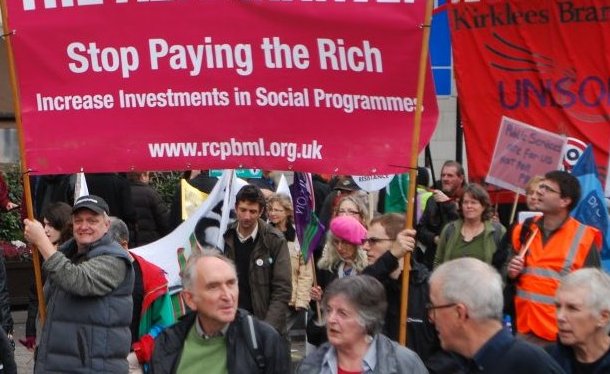 For a century, the parties
in the service of the ruling
class
managed to establish a social base amongst the people. Local party
associations, as well as trade unions and other
organisations such as cultural, social and economic agencies
acted as the transmission belts of these parties to garner votes
and the parties were the link between the rulers and the ruled,
the governors and the governed. Even the thousands of charities
presided over by the Royals act as transmission belts and links
to the governing parties. With the rise of Thatcherism in the
1980s the former aim for society was overthrown. Thatcher did not
even recognise that society exists and demanded that everyone
fend for themselves. As neo-liberal free trade and
nation-wrecking took over, all the old ways of doing things
became defunct. Attempts to resuscitate them by permitting small
parties to play a role and by hoping that the formation of
coalition governments would "work" have not been able to overcome
the fact that the party system depoliticises and disinforms the
polity but the people's striving for empowerment prevails. For a century, the parties
in the service of the ruling
class
managed to establish a social base amongst the people. Local party
associations, as well as trade unions and other
organisations such as cultural, social and economic agencies
acted as the transmission belts of these parties to garner votes
and the parties were the link between the rulers and the ruled,
the governors and the governed. Even the thousands of charities
presided over by the Royals act as transmission belts and links
to the governing parties. With the rise of Thatcherism in the
1980s the former aim for society was overthrown. Thatcher did not
even recognise that society exists and demanded that everyone
fend for themselves. As neo-liberal free trade and
nation-wrecking took over, all the old ways of doing things
became defunct. Attempts to resuscitate them by permitting small
parties to play a role and by hoping that the formation of
coalition governments would "work" have not been able to overcome
the fact that the party system depoliticises and disinforms the
polity but the people's striving for empowerment prevails.
Today, the electoral democracy has no credibility.
Political
parties pay private interests to run their campaigns which
disinform the electors. They deprive them of an outlook of their
own and keep them tied to what others decide on their behalf.
Elections are no longer means which turn "the popular will" into
"the legal will" in the form of party government.
Also, in the past, elections were used to sort out the
contradictions within the ruling class based on a system of
reasonable accommodations. They re-established peaceful
coexistence in the form of party government and thus provided
stable government. If a majority could not be reached, minority
governments were a short-lived affair used to restore a balance
between the contending interests and a majority government would
follow.
Today, the conditions are no longer there for
"reasonable
accommodations" and stability. Anarchy prevails in the economic
base and pervades all political, social, cultural, national and
international affairs. No oligopolic private interest will accept
an authority above its own. Negotiations, which include elections
as a form of negotiations, are no longer the method used to sort
out differences within the ranks of these private interests and
all the arrangements from the past have been or are being
discarded.
 Anarchy is accompanied by
violence and the increasing
use of
government of police powers, not government of laws. Just as in
economics so too in politics -- power is concentrated in
oligopolies which have directly taken over the state institutions
and social functions -- armed forces, intelligence agencies,
functions of the civil service, health care, education and even
charities. These private interests run everything for profit not
"the common good" and this includes elections. Anarchy is accompanied by
violence and the increasing
use of
government of police powers, not government of laws. Just as in
economics so too in politics -- power is concentrated in
oligopolies which have directly taken over the state institutions
and social functions -- armed forces, intelligence agencies,
functions of the civil service, health care, education and even
charities. These private interests run everything for profit not
"the common good" and this includes elections.
Whereas it is true the Labour Party is prepared to form
a
minority government, not by a "progressive alliance" but by
asking for others to support its popular manifesto, the ruling
class will not permit a change in the direction to the economy
out of goodwill. The people will have to organise themselves to
deprive the ruling circles of their power to deprive the people
of what belongs to them by right. Jeremy Corbyn has said that the
Labour Party will move an alternative Queen's Speech on June 19
when the House of Commons reconvenes. It shows that the people's
demand for an anti-austerity agenda and the demand of the ruling
circles for private interests to prevail are face-to-face in
Britain as never before since the austerity agenda was unleashed
during the Thatcher years and New Labour became its champion
under Tony Blair. This experience must be summed up by the
working people so that their striving for empowerment remains in
their hands.
Our Security Lies in the Fight for the
Rights of All!
Now Is
the Time for the People to Step Up the Work to Renew the Political
Process
and Demand the Recognition of Their Rights!

Who Rules?
Following the debacle suffered by the Conservative
Party in
the recent General Election, comparisons are being made with 1974
when Edward Heath won a slender majority in February but failed
to form a government. Heath asked the famous question, "Who rules?" and
the resounding answer was, not him. At that time the
miners were a formidable organised force and the striving of the
miners for the recognition of their rights forced another
election to be held in October of that year. Harold Wilson
representing the Labour Party won the election and formed a
majority government. Using this example, it is predicted that the
country will hold another election within a year and that,
presumably, Labour could make further headway and form a majority
government.
The problem of course is that the conditions in 2017
are not
at all similar to those in 1974, at a time Keynesian economics
went into crisis and the social welfare state was just beginning
to unravel. Today nothing is predictable because the forces at
play and the private interests are no longer what they were in
the past. The very serious challenge which has presented itself
to the working class is to become an organised political force in
its own right. New basic organisations are required which work
out the independent politics of the class and unite it to bring
them about. The working people cannot afford to simply hand over
their power to representatives which they do not even select and
over which they exercise no control. Look what happened with the
Labour MPs that revolted against Corbyn. Where did they get their
mandate? How are they being disciplined? Who decides?
Today the working people know perfectly well Who Rules.
The
financial oligarchy rules. The real question is "Who decides who
rules?" and the challenge facing the working people is to deprive
the financial oligarchy of the power to deprive them of what
belongs to them by right, including their right to govern
themselves and exercise control over the decisions which affect
their lives. For this to happen, the workers need to replace
political parties which divide them along sectarian lines with
basic political organisations which do not limit their role to
filling in a ballot to hand over power to others but put the
power to select candidates and control the agenda in their
hands.
The workers need to organise to discuss the results of
this
election. They need to put their own rights in command of the
discussion, as the reference point for their analyses and plans
of action, not the analyses coming out of the ruling circles and
their media. This is what the workers need to do to prepare for
what lies ahead.

The Irish Question
The British government is negotiating with the
Democratic
Unionist Party (DUP) so that it can form a majority within the
British Parliament and form the government. However, Sinn Féin
leader Gerry Adams has set the record straight that there is
nothing to negotiate with the DUP. The approach of the British
government to the talks in the north is self-serving and neither
neutral nor impartial, Adams pointed out. He clearly explained
that the political institutions must be established on the basis
of previously agreed to terms contained in the Good Friday
Agreement. Nothing less will be accepted.
|
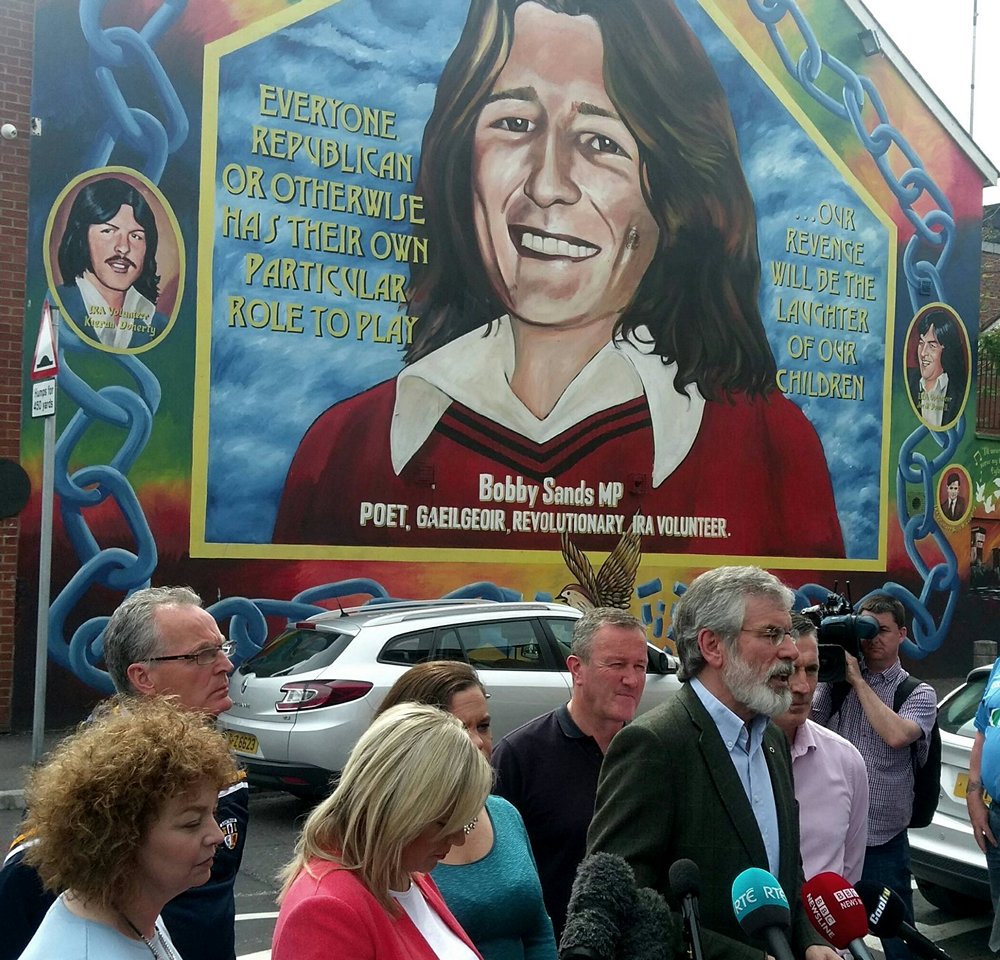
Gerry Adams and Sinn Féin candidates speak to press following
election.
|
Sinn Féin won seven seats in the election but
refuses to be
seated because it does not recognize British rule over the north
of Ireland and refuses to swear allegiance to the Queen.
Speaking the day after the election on the outcome of
the
Westminster election campaign, Gerry Adams said:
"I want to commend Michelle O'Neill and our northern
team,
including all of our candidates and their families for their
outstanding performance in the election. We increased our vote in
every constituency.
"This was a truly national effort by Sinn Féin
and I want to
thank all of our activists who travelled from all parts of the
island to help secure this historic result for the party.
"Sinn Féin respects the mandate we have received
and our
electorate who voted in such huge numbers.
"Nationalists and Republicans have turned their back on
Westminster and accept that that centre of political gravity is
now on the island of Ireland.
"The Taoiseach and DUP need to focus on restoring the
political institutions.
"Theresa May sought a mandate for Brexit, austerity and
the
erosion of human rights. She got her comeuppance.
"The Irish government needs to seize the initiative to
secure
designated special status for the North as part of the Brexit
negotiations."
In subsequent remarks Adams said:
"This was a highly successful election for Sinn
Féin.
"We are
here today to seek agreement to re-establish the Executive and
the institutions on the basis of equality, respect and rights for
all.
"This could and should be done by implementing what has
already been agreed.
"The British government is not neutral or impartial.
Their
approach to talks is entirely self-serving.
"Any deal with the DUP and the Tories will not be to
the
benefit of the people of the north, our economy, our public
services or securing designated special status for the north
within the EU.
"We need the progressive parties to work together.
"We need a strong counter balance to the Tory Party and
the
DUP.
Commenting on remarks by Enda Kenny, the Taoiseach
(Prime
Minister) of the Republic of Ireland following his conversation
with Theresa May after the election, Adams called on the Irish
Government and the incoming Taoiseach to "assert their role to
protect the Good Friday and other agreements."
"The Taoiseach is right to express concerns about any
deal
between the DUP and the Tory party. Sinn Féin's view is that
such
a deal will not be in the best interests of the people of
Ireland, and in particular the people of the north, regardless of
their political allegiances.
"The flaw in the Taoiseach's position is his refusal to
recognise that the British government has never been impartial or
objective in its relationship with Ireland.
"Sinn Féin has never accepted that the British
government is
impartial or neutral.
"The arrangements to restore the political institutions
need
not be protracted. The issues are well known, they are rooted in
agreements already made, and the onus is clearly on the DUP to
drop its opposition to the implementation of the rights-related
issues, which are at the core of the current difficulties.
"The period of continuous Tory rule since 2010 has been
a
constant source of instability for the political process.
"The pro-unionist and partisan nature of this British
government has contributed directly to the current deep political
crisis in the North.
"If the DUP don't prioritise the restoration of the
institutions, and instead decide to become a prop for a
dysfunctional minority government in London, then the parties
should consider inviting an independent chairperson to oversee
proceedings.
"Sinn Féin has already raised this at the
beginning of the
talks process some months ago."
Gerry Adams made it clear that Sinn Féin "will
continue to
press ahead for a speedy return to the institutions while
monitoring closely the machinations in London."
"On a more positive note the focus by the mainstream
British
media on the DUP's policies and history is belated but a welcome
education for people in Britain," Adams added.

47th General Assembly of Organization of
American States
Latin American and Caribbean Countries Prepare to
Counter
Interventionist Manoeuvres
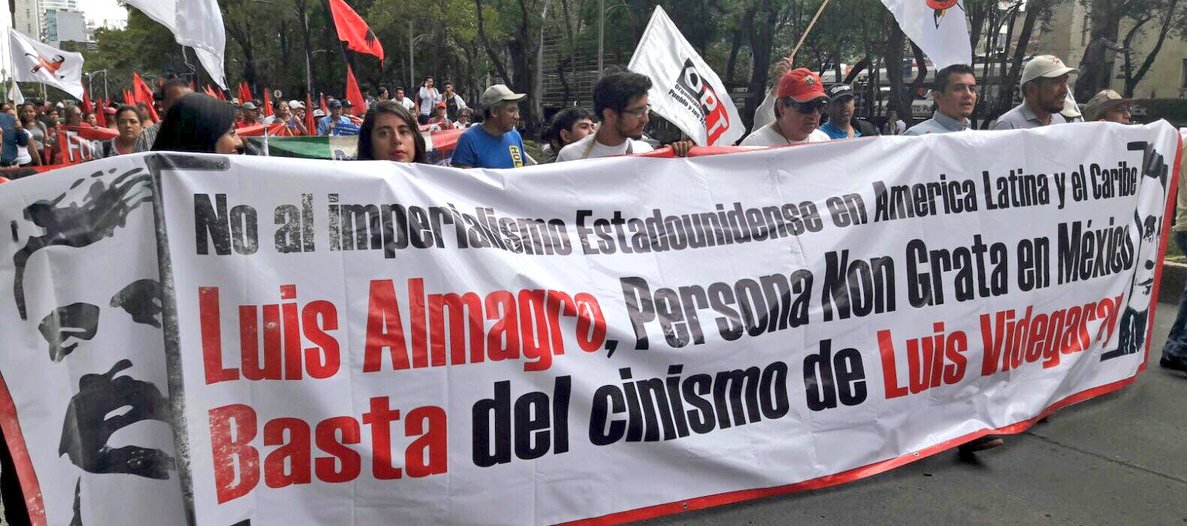
March in Mexico City, June 16, 2017, banner reads: No to US Imperialism
in Latin America
and the Caribbean, Luis Almagro Persona Non Grata in Mexico, Enough of
the cynicism
of Luis Videgaray.
The 47th Regular Session of the Organization of American
States (OAS) General Assembly will be held June 19-21 in Cancun, Mexico
under the theme "Strengthening Dialogue and Concertation for
Prosperity." In addition to delegations from each of the 34 member
states, 72 permanent observers and a host of others described as
"representatives of civil society" have been invited to attend the
meeting.[1]
|
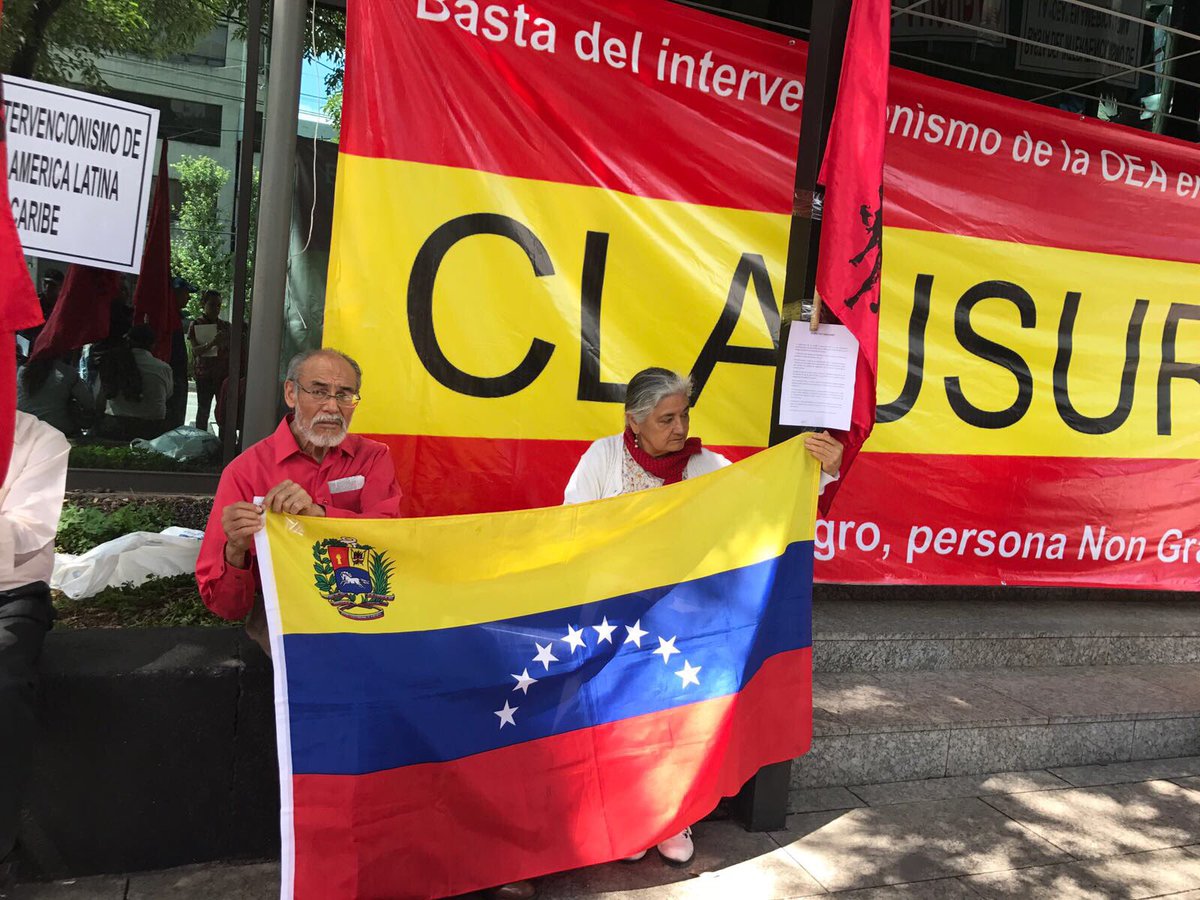
Banner declares OAS meeting "closed."
|
Originally scheduled to take place in Mexico City, the
venue was
changed last month by the host government "for logistical reasons." A
local newspaper, Yucatan Times,
reported
that
the
main
reason
for
the
last
minute
change
in
location
had
to
do
with
security,
based
on
the
fact
that
on April 26 a group of farm workers forced their way into the
Saint Lazarus Legislative Palace which houses the Mexican Chamber of
Deputies and occupied it for at least three hours, during which time
people were prevented from entering or leaving the building.
More than likely, the prospect of mass demonstrations
in the
capital city against the OAS and Mexico's servile role in support
of the U.S. project for regime change in Venezuela was what
really worried the already deeply unpopular government of Enrique
Peña Nieto, prompting the move. Cancun, a tourism centre in
Mexico's Yucatan Peninsula is less accessible than Mexico City
and a venue where demonstrations can be more easily contained by
police.
Mexico signaled its role at the OAS General Assembly
shortly after the May 31 Meeting of Consultation of OAS Ministers of
Foreign Affairs in Washington, DC "to consider the situation in
Venezuela" that did not deliver the results the U.S., Canada and Mexico
wanted. At that meeting, all 14 members of the Caribbean Community
(CARICOM) and countries in Central and South America belonging to the
Bolivarian Alliance for the Peoples of Our America (ALBA) refused to go
along with an interventionist draft declaration put forward by the
U.S., Canada, Mexico and two other countries against the government of
Venezuela. CARICOM put forward a very different proposal, supported
unanimously by its members, that began by reiterating a commitment to
the principles of non-interference and non-intervention. Ultimately the
meeting was suspended without a vote being taken or consensus reached.[2] This week it was announced that the
meeting would reconvene Monday, June 19 in Cancun.
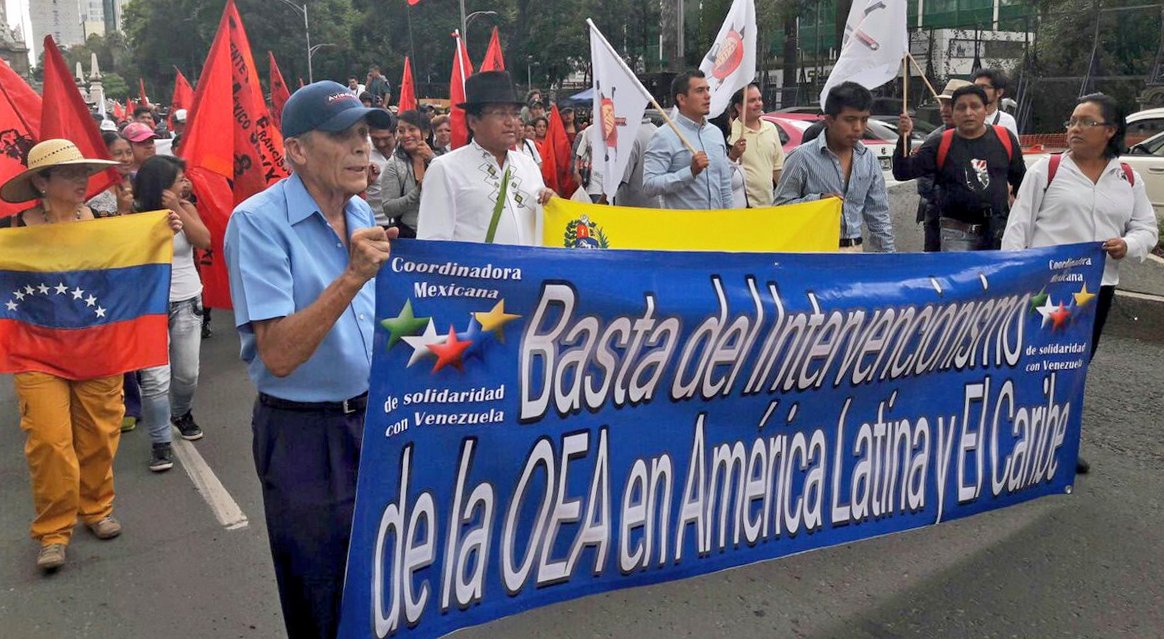
"Enough of OAS interventionism in Latin
America and the Caribbean," Mexico City, June 16, 2017
A statement from Mexico's foreign ministry said the
country would
continue pushing at the General Assembly to pass a resolution
expressing "concern" over a list of spurious allegations against
Venezuela, in line with Foreign Minister Luis Videgaray’s stated
opinion that "Venezuela has ceased to be a functioning democracy."
|
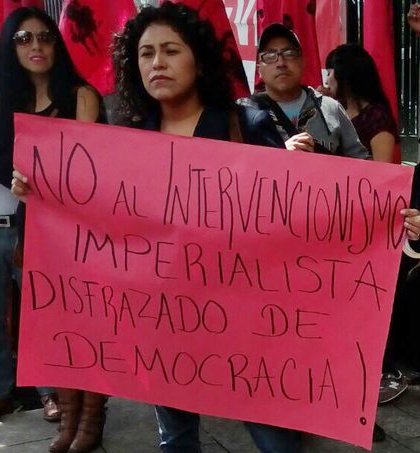
"No to imperialist interventionism dressed up as
democracy"
|
The
Cancun
meeting,
like
last
year's
General
Assembly
in
Santo
Domingo,
Dominican
Republic,
is
bound
to
be
a
forum
for
the
forces
that
uphold
Venezuela's
sovereignty
and
right
to
self-determination
to
battle
it
out
with
the
minority
led
by
the
U.S. that give themselves the right to
meddle in Venezuela's affairs. The U.S. will seek to divide and bully
the others into supporting its dirty scheme against the Bolivarian
project of the Venezuelan people first begun in 1999 under President
Hugo Chávez. This is consistent with the way the U.S. has used
the OAS since its founding in 1948 -- as an instrument to facilitate
its domination of Latin America and the Caribbean through military
invasions, occupations, military and electoral coups d'état and
blackmail of all kinds.
In anticipation of the Cancun meeting, OAS Secretary
General
Luis Almagro has been revving up his personal campaign against
Venezuela using the organization's website and social media
accounts. Without any authorization from OAS members to whom he
is supposed to be accountable, he has posted videos of himself
issuing wild and baseless accusations against Venezuela's
President Nicolás Maduro, individual government Ministers and
others in the country's leadership. Despite giving a green light
to violent opposition forces sowing death and destruction in the
streets, Almagro's efforts to smash the opposition to OAS
interference in Venezuela's affairs as expressed by member states
at the May 31 meeting is a an uphill battle.
Almagro was appointed to a five-year term in May 2015.
He has
been strongly criticized by OAS member states for using the
office of Secretary General to promote foreign interference and
regime change in Venezuela. Trinidad and Tobago Prime Minister
Keith Rowley on May 31 called for Almagro to step down. "Trinidad
and Tobago registered a strong objection to the behaviour of the
OAS leadership. The public servants from the OAS took it upon
themselves to engage the Government of Venezuela, the president
in fact, in a very derogatory manner," Rowley said. "Because of
the behaviour of the OAS leadership, the OAS has now removed
itself from any meaningful participation. And, in fact, it has
deteriorated into partisan attacks and it is threatening to have
the same effect on CARICOM," Rowley warned.
Plenary Sessions of the General Assembly are scheduled
for June 20 and 21. Last year's plenaries saw heated battles between
those calling for foreign intervention in Venezuela and those opposed
to it, whose position in the end prevailed. In a statement issued at
the end of the 2016 meeting in Santo Domingo, OAS member states
expressed their overwhelming support for dialogue between the
Venezuelan government and the opposition and rejected a move toward
sanctions against the country.
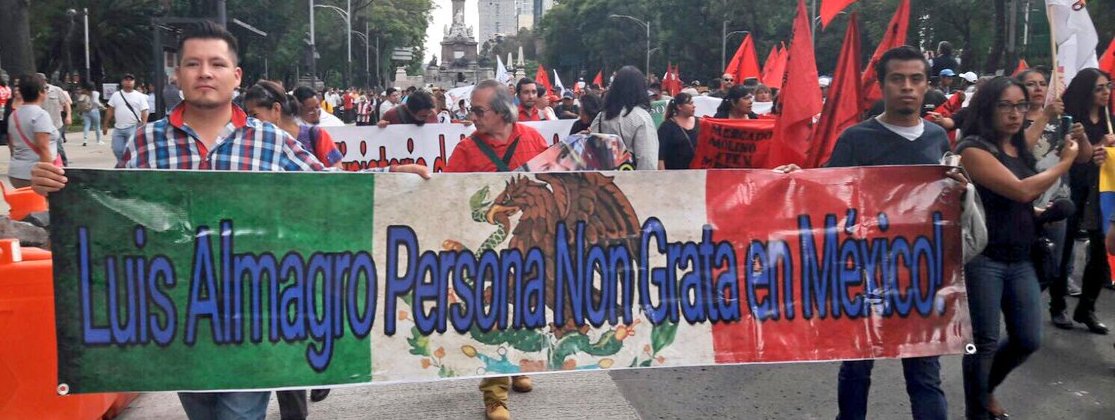
Notes
1. Originally made up of 35 member states, Cuba was
suspended in 1962 on an
anti-communist basis. Although the suspension was lifted in 2009, Cuba
has indicated it has
no interest in returning to the OAS. Venezuela is currently
included among the 34
member states but is in the process of withdrawing from the
organization. Others
who have been invited to the 47th General Assembly are listed here.
2. See "Imperialist
Scheme
at
Organization
of
American
States
Unravels"
TML Weekly, June
3, 2017

PREVIOUS
ISSUES | HOME
Website: www.cpcml.ca
Email: editor@cpcml.ca
|

















 - The Conservatives also
ran a terrible campaign organized by one
of
the private firms which the ruling class hires nowadays to run
elections. These private firms have replaced political parties as
primary organisations which link the voters to the system called
a representative democracy. They think that depoliticising the
polity by making the character of one's opponent the target of
attack is the way to run successful elections, despite the
people's hatred for attack ads. The refusal of the ruling party
to discuss substantive issues make it impossible to give the
impression that the people decide the agenda of an election and
provide a mandate for the next government. In this election,
thanks to the presence of Corbyn who eloquently presented the
need for an anti-austerity agenda, the people were able to
express their rejection of this idea. There was also the matter
of the Conservative Manifesto which was, to the chagrin of the
Conservatives themselves, "peppered with arsenic" as a member of
the Conservative Party put it. All of it revealed how detached
the Conservative Party is from the concerns of the working people
in Britain who found in Corbyn a champion for their demand to
turn things around in favour of the working people, not the
rich.
- The Conservatives also
ran a terrible campaign organized by one
of
the private firms which the ruling class hires nowadays to run
elections. These private firms have replaced political parties as
primary organisations which link the voters to the system called
a representative democracy. They think that depoliticising the
polity by making the character of one's opponent the target of
attack is the way to run successful elections, despite the
people's hatred for attack ads. The refusal of the ruling party
to discuss substantive issues make it impossible to give the
impression that the people decide the agenda of an election and
provide a mandate for the next government. In this election,
thanks to the presence of Corbyn who eloquently presented the
need for an anti-austerity agenda, the people were able to
express their rejection of this idea. There was also the matter
of the Conservative Manifesto which was, to the chagrin of the
Conservatives themselves, "peppered with arsenic" as a member of
the Conservative Party put it. All of it revealed how detached
the Conservative Party is from the concerns of the working people
in Britain who found in Corbyn a champion for their demand to
turn things around in favour of the working people, not the
rich. A lot is being put down to
the impact of personalities
on the
outcome, but such discussion is a distraction from the
substantive issues. It only serves to disinform and depoliticize
the polity. Instead of building institutions and arrangements
which are under their control and engaging in democratic renewal,
the working people are to believe in the courage and convictions
of people like Jeremy Corbyn even though it is the system which
disempowers them and requires renewal. The ineptitude of Theresa
May only compounds the crisis in which the system of
representative democracy is mired but is not its cause.
Similarly, promises to reverse the anti-social offensive require
an organization which empowers the people. The electoral and
governance system which claim to represent "the people" and the
"national interest," when it fact they represent the private
interests of oligopolies which operate on an international scale,
have to be replaced. The private interests are engaged in cut-throat
competition to control the assets of various states so as
strengthen their global striving for domination. It is crucial to
take this into account when working out a way forward which
favours the working people.
A lot is being put down to
the impact of personalities
on the
outcome, but such discussion is a distraction from the
substantive issues. It only serves to disinform and depoliticize
the polity. Instead of building institutions and arrangements
which are under their control and engaging in democratic renewal,
the working people are to believe in the courage and convictions
of people like Jeremy Corbyn even though it is the system which
disempowers them and requires renewal. The ineptitude of Theresa
May only compounds the crisis in which the system of
representative democracy is mired but is not its cause.
Similarly, promises to reverse the anti-social offensive require
an organization which empowers the people. The electoral and
governance system which claim to represent "the people" and the
"national interest," when it fact they represent the private
interests of oligopolies which operate on an international scale,
have to be replaced. The private interests are engaged in cut-throat
competition to control the assets of various states so as
strengthen their global striving for domination. It is crucial to
take this into account when working out a way forward which
favours the working people.  For a century, the parties
in the service of the ruling
class
managed to establish a social base amongst the people. Local party
associations, as well as trade unions and other
organisations such as cultural, social and economic agencies
acted as the transmission belts of these parties to garner votes
and the parties were the link between the rulers and the ruled,
the governors and the governed. Even the thousands of charities
presided over by the Royals act as transmission belts and links
to the governing parties. With the rise of Thatcherism in the
1980s the former aim for society was overthrown. Thatcher did not
even recognise that society exists and demanded that everyone
fend for themselves. As neo-liberal free trade and
nation-wrecking took over, all the old ways of doing things
became defunct. Attempts to resuscitate them by permitting small
parties to play a role and by hoping that the formation of
coalition governments would "work" have not been able to overcome
the fact that the party system depoliticises and disinforms the
polity but the people's striving for empowerment prevails.
For a century, the parties
in the service of the ruling
class
managed to establish a social base amongst the people. Local party
associations, as well as trade unions and other
organisations such as cultural, social and economic agencies
acted as the transmission belts of these parties to garner votes
and the parties were the link between the rulers and the ruled,
the governors and the governed. Even the thousands of charities
presided over by the Royals act as transmission belts and links
to the governing parties. With the rise of Thatcherism in the
1980s the former aim for society was overthrown. Thatcher did not
even recognise that society exists and demanded that everyone
fend for themselves. As neo-liberal free trade and
nation-wrecking took over, all the old ways of doing things
became defunct. Attempts to resuscitate them by permitting small
parties to play a role and by hoping that the formation of
coalition governments would "work" have not been able to overcome
the fact that the party system depoliticises and disinforms the
polity but the people's striving for empowerment prevails.

